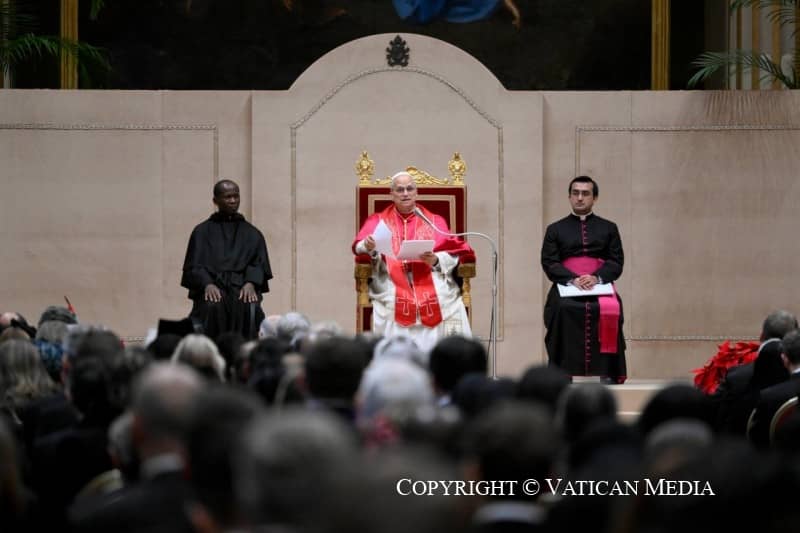DENVER – On Wednesday, the U.S. Congress adopted HR 390, titled the “Iraq and Syria Genocide Relief and Accountability Act of 2018,” which now heads to President Donald Trump’s desk, where he’s expected to sign it into law.
First introduced two years ago, the bill makes it clear that victims of the ISIS genocide in Iraq, including Christians and Yazidis, should be included in American assistance to the region. It also features American aid for holding perpetrators accountable, including funding to develop local judicial and investigatory capacities.
For those concerned about the plight of suffering religious minorities around the world, very much including Christians, it’s obviously good news. In fact, there are at least three levels upon which HR 309 seems something to celebrate.
First, it means the world to the Christians on the ground in Iraq right now, struggling to keep one of the world’s most ancient Christian communities alive.
Second, it shows that 21st century America once in a while can still transcend partisan divides, as the author of the bill is a staunch Republican and the lead co-sponsor a liberal Democrat.
Finally, it’s a win for Catholic political engagement in America, as probably the lead non-governmental force behind the bill was the Knights of Columbus. (The Knights are also a principal sponsor of Crux.)
To begin, the bill provides for various forms of help to Iraq’s genocide victims:
- Funding groups (faith-based and not) offering humanitarian, stabilization, and recovery.
- Assessing needs and triggers inducing these survivors to flee.
- Identifying warning signs in Iraq or Syria among groups that have been victims of genocide, crimes against humanity or war crimes.
- Support for criminal investigations into ISIS perpetrators of genocide, crimes against humanity and war crimes.
- Encourage foreign governments to add identifying information about suspected ISIS perpetrators to security databases and screening and to apprehend and prosecute perpetrators.
God knows these people need the help. Here’s how Representative Chris Smith (R-NJ), author of the bill, laid out the argument when he introduced it in January 2017.
“Iraq’s Christian population is less than 250,000, down from up to 1.4 million in 2002, down from 500,000 in 2013 just before ISIS began targeting Christians for genocide,” Smith said.
“Having fled ISIS, these Christians may have to flee their homelands. Perhaps they will take the little money they have left and pay smugglers to get them to Europe,” he said. “They would risk becoming prisoners of human traffickers or perishing in the Mediterranean Sea, where more than 5,000 refugees and migrants died or went missing in 2016.”
The politics of the bill are also encouraging.
Smith is the author, and Representative Anna Eshoo (D-Calif.) is the lead co-sponsor. In many ways, they’re a political odd couple. Smith has a 100 score from the National Right to Life Committee, Eshoo gets 100 percent from the National Abortion Rights Action League. Smith voted for the Defense of Marriage Act, Eshoo against. They clash over taxes and budgets, health care policy, and most other contentious issues.
Yet they’re both committed to persecuted Christians – a natural for Eshoo, the only member of Congress of Assyrian descent and co-founder of the House’s Religious Minorities in the Middle East caucus.
For Americans, it’s good news that such clear ideological rivals can find common ground on anything, despite today’s toxic partisan divides.
For persecuted Christians around the world it’s maybe even better news, because it suggests their suffering doesn’t necessarily have to be swept into the ideological sausage grinders that have come to dictate virtually every other debate in Western politics.
Finally, consider the NGOs supporting the legislation: The Knights of Columbus, Family Research Council, In Defense of Christians, 21st Century Wilberforce Initiative, Commission for International Justice and Accountability, HIAS, Aid to the Church in Need USA, Open Doors, A Demand for Action, Yezidi Human Rights Organization International, Religious Freedom Institute, Christian Solidarity Worldwide, Syrian Accountability Project, and Civitas Maxima.
It’s an ecumenical lineup, including Catholic, Protestant and avowedly secular groups, and probably the prime mover was the Knights – who was also the leading force behind the U.S. government’s official recognition of what happened in Iraq as a “genocide”.
On Wednesday, Supreme Knight Carl Anderson hailed the House approval.
“The Knights of Columbus applauds the passage of HR 309, which makes clear that those targeted for genocide by ISIS should be included in American government assistance in the region,” Anderson said.
“The fact that this bill passed both the House and the Senate unanimously shows that the American response to genocide transcends partisanship and that there is enormous political will to protect and preserve religious minorities in the Middle East, including Christians and Yazidis, who were targeted for extinction,” he said.
Anderson’s statement included a reminder that since 2014, the Knights of Columbus has committed more than $20 million for relief efforts on behalf of Christians and other religious minorities in the region.
Assuming Trump signs HR 309 into law, it’ll be an object lesson that determined political engagement by faith-based groups can still make a difference.
In other words, there’s a lot to celebrate about what happened in the House of Representatives on Wednesday – and these days, being able to celebrate anything that happens in American politics pretty much defines a good day.











